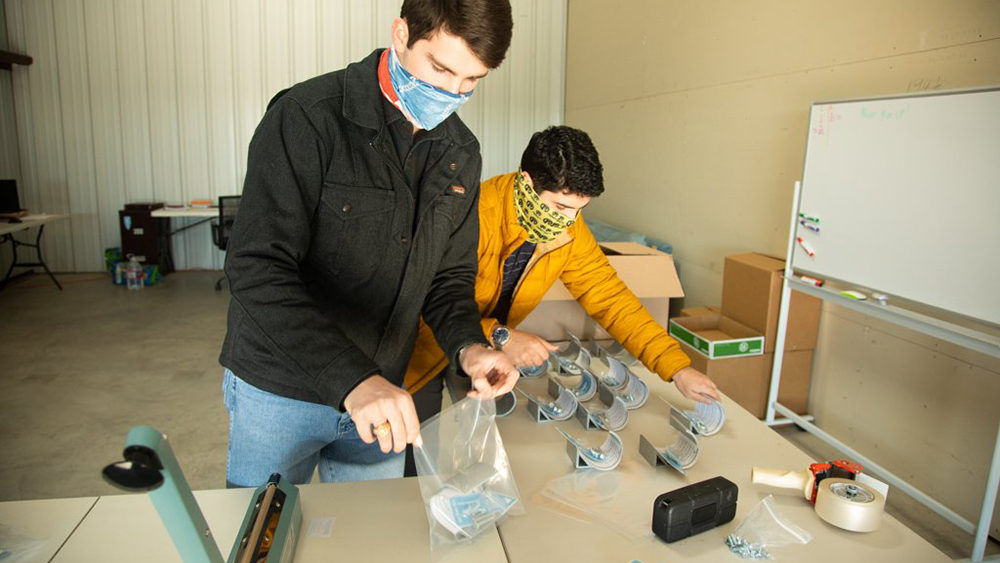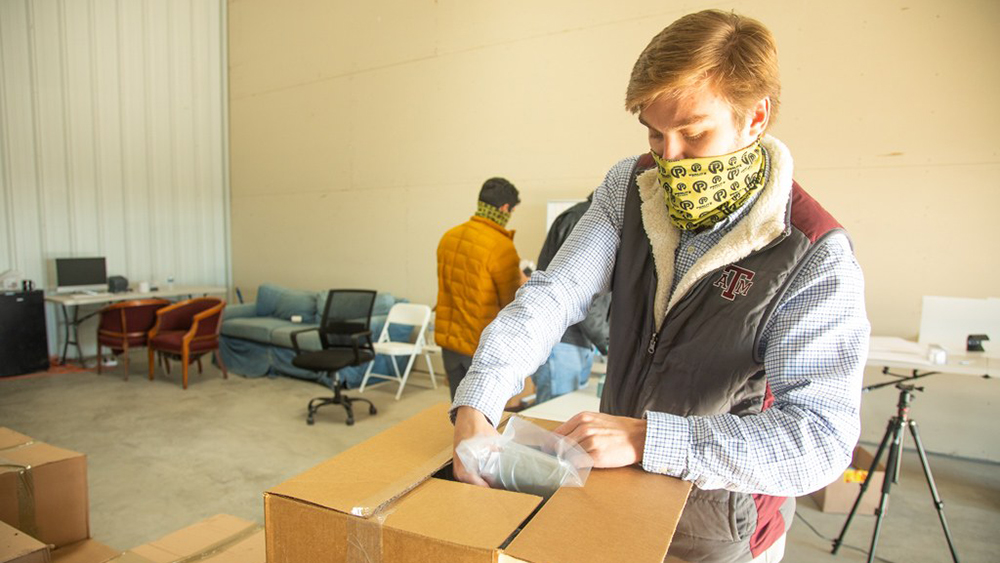The idea came to Texas A&M University students Austin Burt and Jorge Arroyo one day in May after stopping at a gas station to use the restroom.
Arroyo was back in Texas after being sent home from an exchange program in Ireland when the novel coronavirus took hold. The students, friends since middle school, had stopped at the gas station while driving down to the coast. Faced with touching the dirty door handle to the public restroom, it occurred to them that it shouldn’t be the only option.
“I can’t tell you how many times throughout my life I’ve reached up with my foot to grab the handle,” Burt said. “There’s no telling who’s touched it.”
As the COVID-19 pandemic began to spread around the globe, they noticed the numerous safety and health hazards that are commonplace in public settings, with door handles being a major culprit of virus-spread. Their research also opened their eyes to a sobering fact: only 31% of men and 65% of women wash their hands after using the restroom.
With people returning to stores, schools and offices, they decided to confront the challenge: how to give the public a safer alternative to potentially contaminated door handles. Already less than ideal under normal circumstances, simply opening a door during a global pandemic is now a health risk.
After all, it’s a dilemma many people face several times a day, often resorting to grabbing a handle with a paper towel or turning to inventive techniques when only hand dryers are available. Burt and Arroyo, who both study renewable energy and natural resources in the College of Agriculture and Life Sciences, and their friend, Jack Cooper, an industrial distribution major in the College of Engineering, started to look for an answer.
Their solution: The SanitaryPull, a hands-free, sanitary door opener. Similar products have entered the market or grown in popularity during the pandemic, but aren’t widely used or particularly user-friendly, the students said.

The SanitaryPull was designed with human muscle behavior in mind. The aluminum device has a curved arc that a user positions their foot under to pull open the door. An inclined bottom plate supports the foot for balance. The design lends itself to optimal grip and safety, plus a powder-coated finish prevents it from leaving scuff marks on shoes.
“We had seen products similar to this before, but it’s a different kind of motion where you step down,” Arroyo said. “With ours, you pull with the back of your foot, which actually provides a lot more leverage to open the door.”
For the student entrepreneurs – Burt is a junior and Arroyo and Cooper are seniors – the experience has been a trial by fire. If they had a motto, they said, it would be “Figure It Out.”
Things they’ve had to figure out: how to form an LLC, apply for a patent, contact distributors, design a website, fill orders, file monthly tax reports and more. They also pored over hundreds of patent applications to make sure they weren’t infringing on any existing designs.
Will Hall, an agricultural economics senior, was also instrumental in helping with business strategy and finding potential clients and distributors.

Initially working out of the garage of Burt’s parents’ home, they moved the operation in September into a storage unit off Jones Butler Road in Bryan that serves as their office and headquarters. It’s there that Burt, Arroyo and Cooper have spent seven days a week packing up orders, communicating with customers, contacting potential distributors and all of the other tasks associated with running the business.
The team started advertising their product about two weeks ago, and are in the process of learning how to negotiate deals with distributors, Cooper said. The SanitaryPull is already in use at College Station restaurants Harvey Washbangers, Stella Southern Café and Napa Flats Wood-Fired Kitchen. Beyond Texas, Arroyo said there have been buyers and potential distributors in California, Tennessee, Virginia and Missouri.
“We’re really getting the ball rolling and starting to build credibility,” Cooper said. “We’re building our reputation and trying to get our name to where people recognize it.”
Their first order from the manufacturer was about 3,500 units, and another 10,000 are on the way.
They envision the product being used everywhere from schools and offices to health care facilities and commercial businesses around the world.
“If a couple of doors have them, we might as well have them on all doors,” Arroyo said. “People should have the option.”